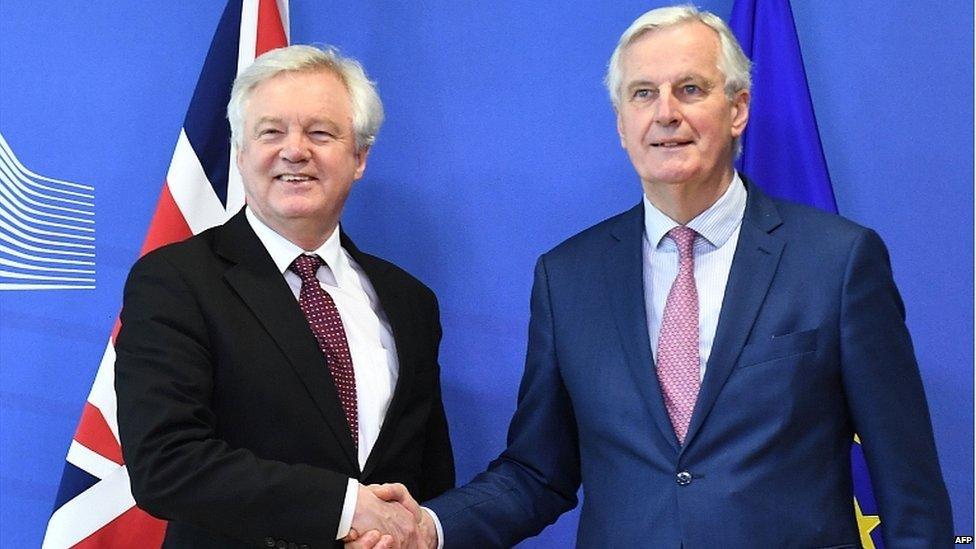EU summit moves from Russia to Brexit
- Published
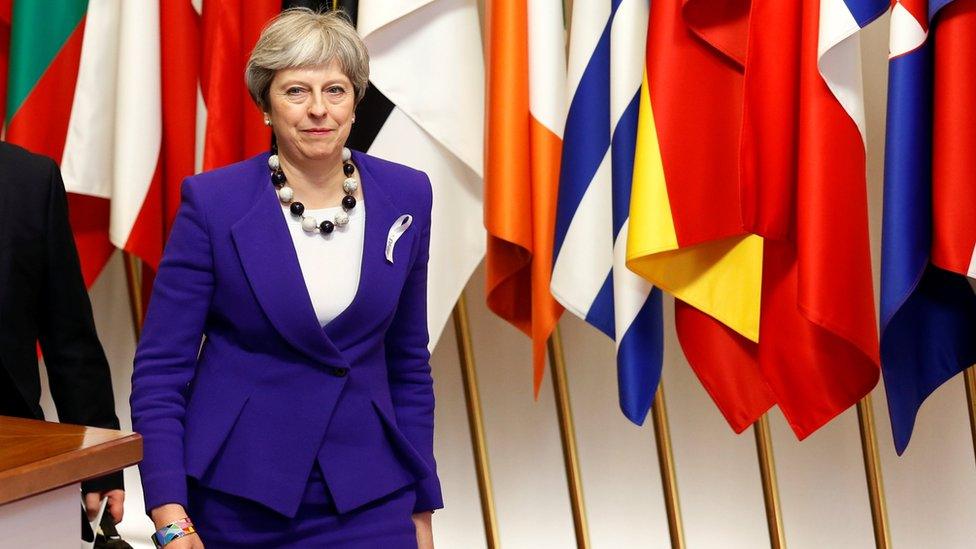
After a night of heated dinner debate over Russia, EU leaders turn their palates and attention this morning to a breakfast - though as this summit timetable keeps shifting, possibly brunch - discussion about Brexit.
The two issues are closely linked.
Theresa May came to Brussels looking for a robust response to the Salisbury attack. This was important for her not just in security terms. It was also her first test after a year of often bad-tempered Brexit negotiations to see if she could still rally European support in times of need. She could.
EU leaders are divided over what action they want to take against Russia after Salisbury, but they often fall out over foreign policy.
This is not a reflection of fading solidarity with the UK because of Brexit. In fact, the EU is adamant on maintaining close security relations with a post-Brexit Britain.
Traditionally Brussels has looked to the US for protection, but an unpredictable President Trump in the White House means EU leaders now think Europe should be better prepared to defend itself - in terms of cyber-security, preventing further terror attacks, and the prudent use of sanctions. With this they want the UK's help.
Theresa May said, after talks, that it was "right that we stand together"
The EU's future relationship with the UK will thus be at the heart of Friday's Brexit debate at the summit.
It's the moment the UK has been waiting for - when European leaders give the nod to their chief negotiator, Michel Barnier, to (finally, from a British point of view) begin talks about trade and the rest of the EU-UK post-Brexit relationship.
London hopes this will lead to a groundbreaking trade deal between the two sides - one so deep and wide-reaching that, among other things, it will dissipate concerns about the appearance of a post-Brexit hard border between Northern Ireland and the Republic of Ireland.
This, until now, has been a persistent sticking point in Brexit negotiations.
Brussels remains sceptical but the UK government hopes trade talks will see EU unity over Brexit crumble, to its advantage, as the national interests of individual countries come to the fore.
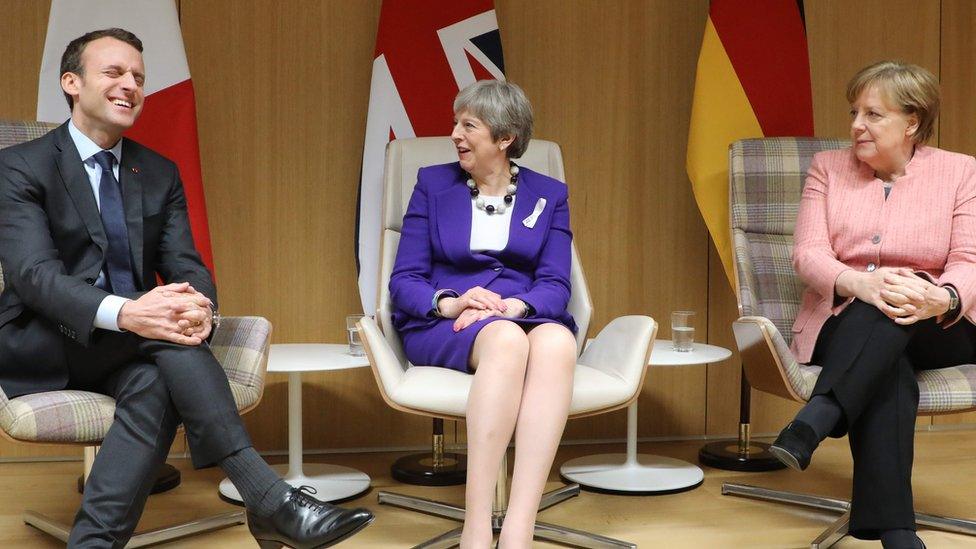
A bespoke trade deal with the UK could cause tensions with France and Germany, who want to protect the EU single market
It was easy for EU leaders to stick together in the first phase of Brexit negotiations - about the "Brexit bill" presented to the UK. They all wanted money. But look ahead to a future trade deal, and EU countries start to sing from different hymn sheets.
Denmark is focused on fishing quotas, while Luxembourg fixates on financial services, Poland ponders security pacts and France and Germany insist on no rule-bending at all for the UK.
EU leaders will attempt to contain their differences but it's going to be an interesting few months.
In the meantime another special on the Brexit menu will be the rubber-stamping of the transition arrangement, the 21-month period after the UK formally leaves the EU on 29 March 2019.
Businesses in the UK and the EU are thrilled about this. Uncertainty over Brexit has been costly, and fears there could be no deal at all were commonplace before this week.
These fears shouldn't disappear entirely.
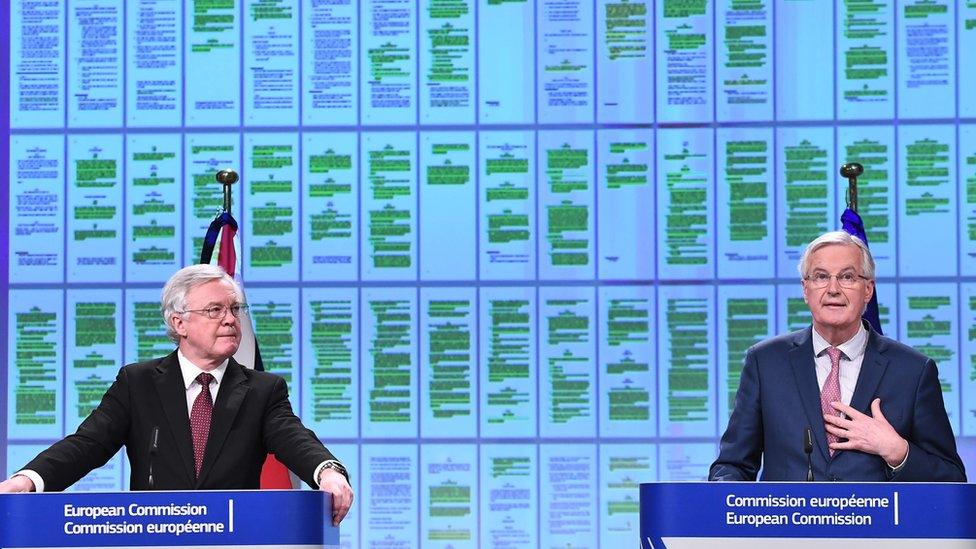
David Davis and Michel Barnier highlighted areas of agreement between the UK and the EU on the transition period on Monday
Brexit negotiations could still break down. If they do, under the EU mantra of "nothing is agreed until everything is agreed", the transition period could be scrapped before it begins.
That said, EU leaders sound optimistic that a Brexit deal will be struck- though many question why the UK should be UK delighted that Brussels has allowed it to sign trade deals with other countries during the transition period.
"Doesn't Downing Street realise," one EU diplomat muttered to me, "no country: not the US, Japan, no-one will want to complete a trade deal with the UK until they know what kind of relationship London has with us (the EU)?
"That's what will clinch the UK's value to them."
You won't be surprised when I tell you that UK negotiators disagree.
- Published22 March 2018
- Published19 March 2018
- Published19 March 2018
- Published19 March 2018
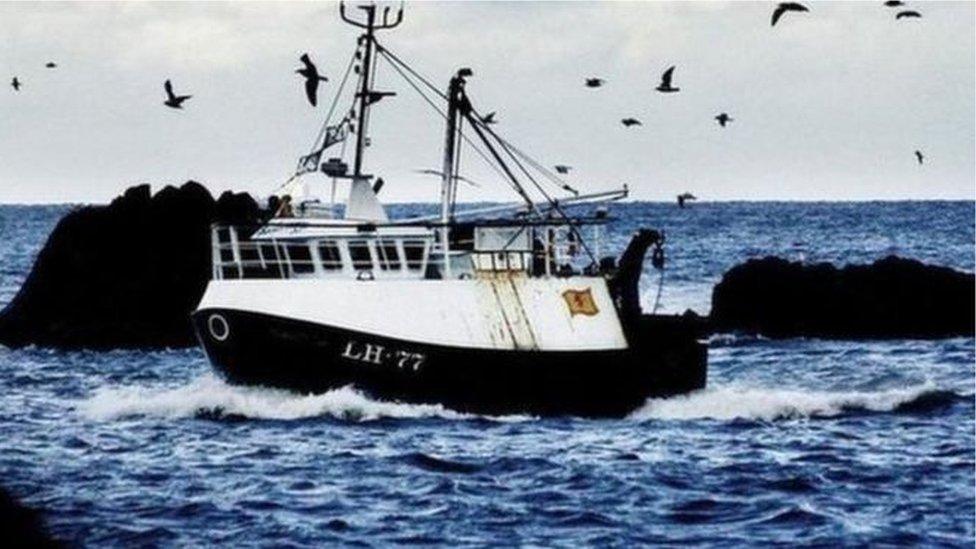
- Published30 December 2020

- Published19 March 2018
